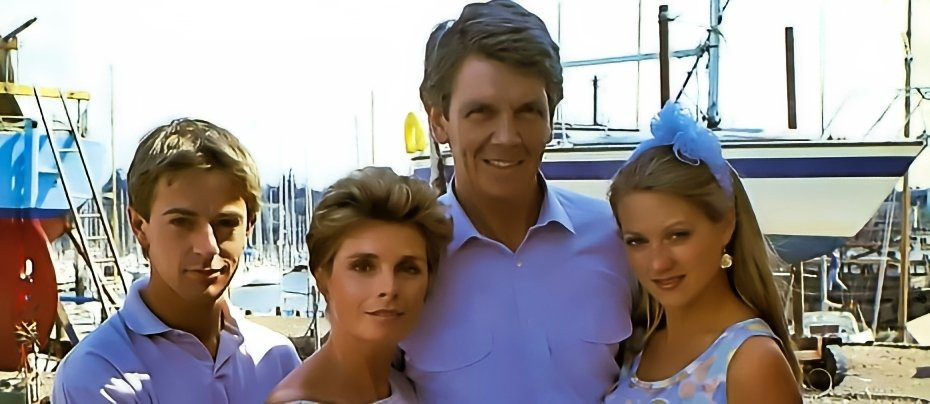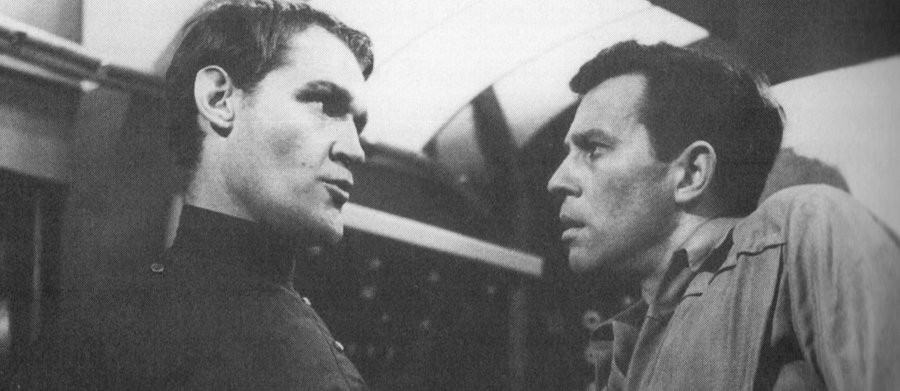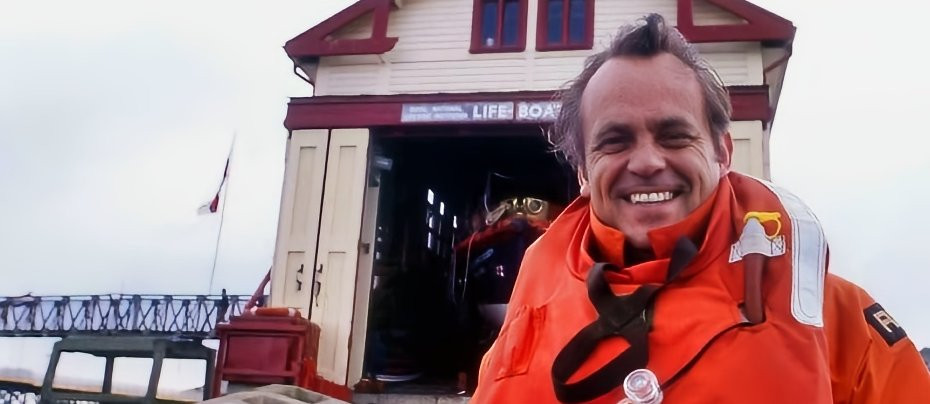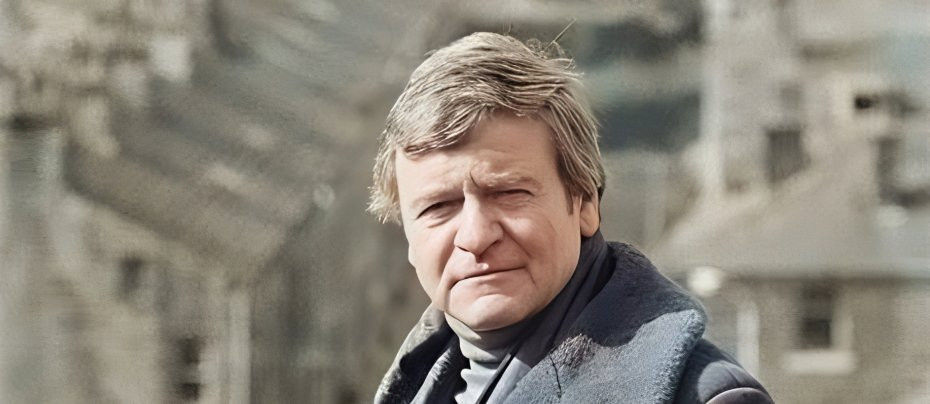
Glyn Owen
Prolific British character actor Glyn Owen appeared in numerous television series but was best known for his role as the boozy Jack Rolfe in Howards' Way, the series that was dubbed 'Dallas on Sea' by the BBC who tried to emulate the success of the American super-soaps of the 1980s. The press actually referred to it as the 'boating and bonking' serial.
Glyn Griffith Owen was born on 6 March 1928, in Bolton, Lancashire, to an English mother and Welsh father. He left home at the age of 14 and worked in a variety of jobs, which included delivering telegrams for the GPO, "dodging the bombs on my red bicycle", but he already had aspirations to go into showbusiness. In order to pursue this ambition, Owen went into repertory, playing everything from leading roles to walk-on parts. He completed his National Service in 1948 during which time he had acted in the War Office's amateur dramatic company. He then joined the Metropolitan Police and, for the next five years, was an officer in the Paddington District. As a traffic policeman, he once pulled over Richard Attenborough for speeding. When the actor explained that he was late for a live BBC recording, Owen gave him a "blue light" escort to the studios.
His break into acting finally came when he was taking evening classes and a tutor from the Central School of Speech and Drama recommended that he join the Actors' Studio Company at St John's Wood. After one performance Lew Grade wrote to him, offering to be his agent. Then, in 1955, he auditioned for the George Mitchell Singers and appeared with them in Blackpool alongside Alma Cogan.
His television debut was in the four-part ATV production of The Trollenberg Terror in December 1956 and that was followed by appearances in The Invisible Man, Probation Officer, and William Tell. Then, in 1957 he was cast as Dr. Patrick O'Meara in the hospital soap Emergency-Ward 10. He stayed with the series until 1961, even appearing in the 1959 spin-off film, Life in Emergency Ward 10 and in The Larkins' spin-off film, Inn for Trouble in 1960.
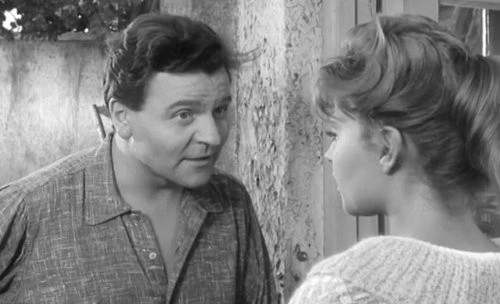
Owen also forged a successful career on the stage. He was a founder member of the English Stage Company at the Royal Court Theatre in London under George Devine and appeared there from 1960 to 1964. He appeared in several plays by John Osborne, including Blood of the Bambergs and Under Plain Cover. He moved with ease between the stage and television. In 1965 he was in Coronation Street, as a character called Norman Lindley who has a fling with Elsie Tanner. In 1966-67 he starred as the ex-policeman Richard Hurst in the spy series The Rat Catchers and in between he appeared in Richard the Lionheart, The Saint, No Hiding Place, Danger Man and Dr. Finlay's Casebook.
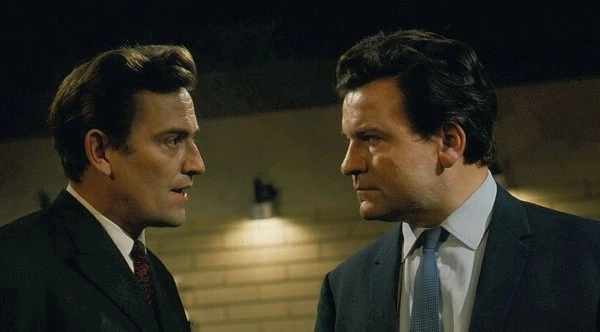
In 1967-68 he played Athos in the musical The Four Musketeers at the Theatre Royal, Drury Lane, alongside Harry Secombe. In 1969 he played Claudius opposite Tom Courtenay's Hamlet for the newly formed 69 Theatre Company, and in 1972 he was with the Royal Shakespeare Company when it toured North America, arriving on Broadway in Luther with Albert Finney in the title role. In 1975 he was the father in Peter Shaffer's Equus in the West End and from 75 to 83 he was in a series of plays with Hampstead Theatre Club.
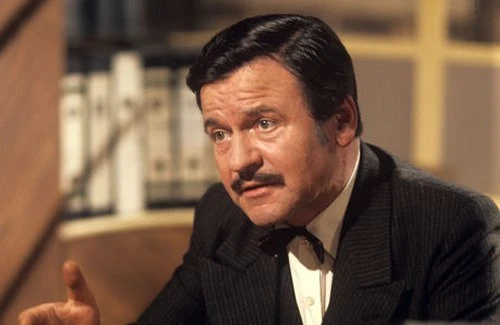
In the 1970s he was on television in Doomwatch, Hunter's Walk, The Brothers, The Black Arrow, All Creatures Great and Small and Doctor Who. He also turned in a notable performance as Nye Bevan in BBC 2's Encounters season. He was no less prolific in the 1980s and 90s and was rarely off the small screen, appearing in Juliet Bravo, The District Nurse, Casualty, Heartbeat and Peak Practice, but it was Howards' Way that made him a household name.
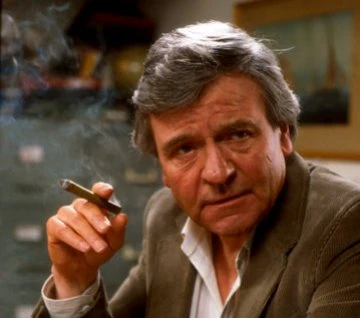
Owen’s first marriage in 1965 was to the Welsh actress Patricia Mort who passed away in 1999. In 2001, he married former dancer and music agency director Carrie Clifton. His two children from his first marriage, Cathryn and Lloyd, followed their father into the acting profession.
Glyn Owen died from cancer on 10 September 2004, aged 76 years. His legacy is one of dedication, talent, and a deep love for the performing arts. His contributions to British television and theatre continue to inspire and entertain audiences and his memory lives on through his work and the countless lives he touched.
Published on January 4th, 2025. Written by Marc Saul for Television Heaven.




